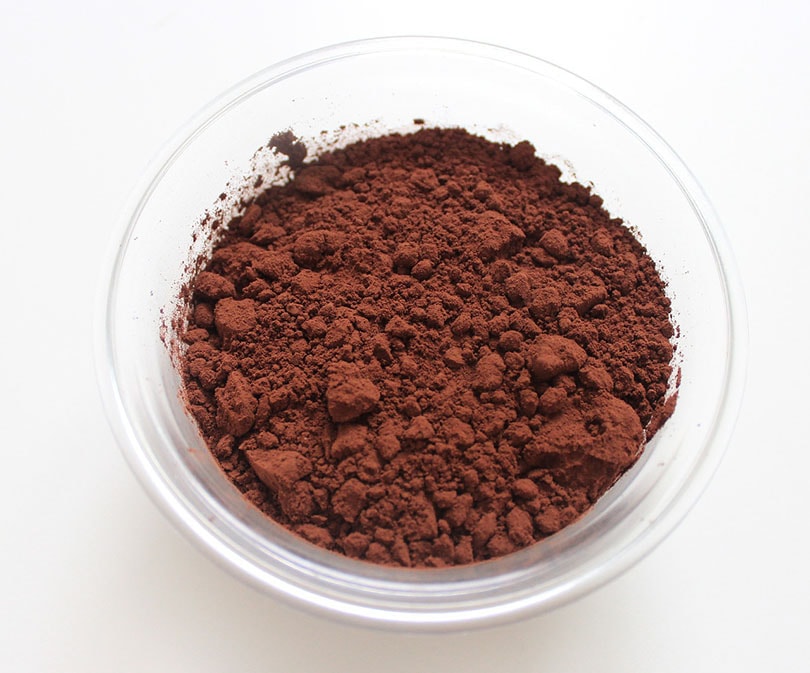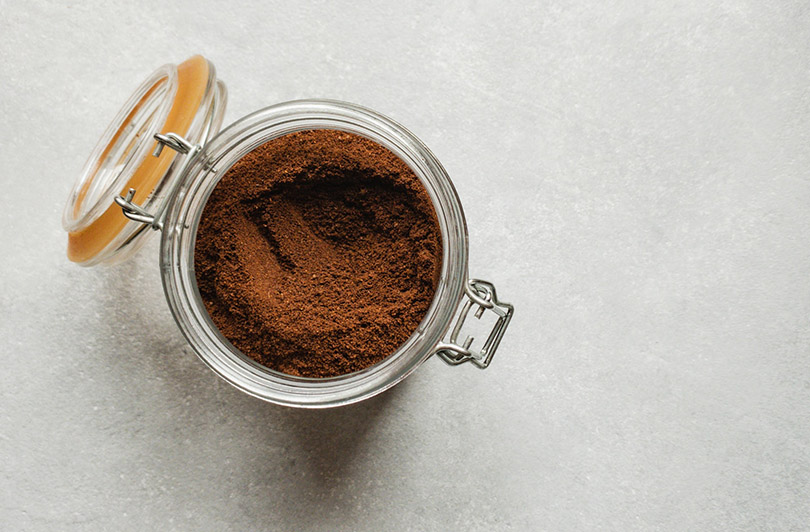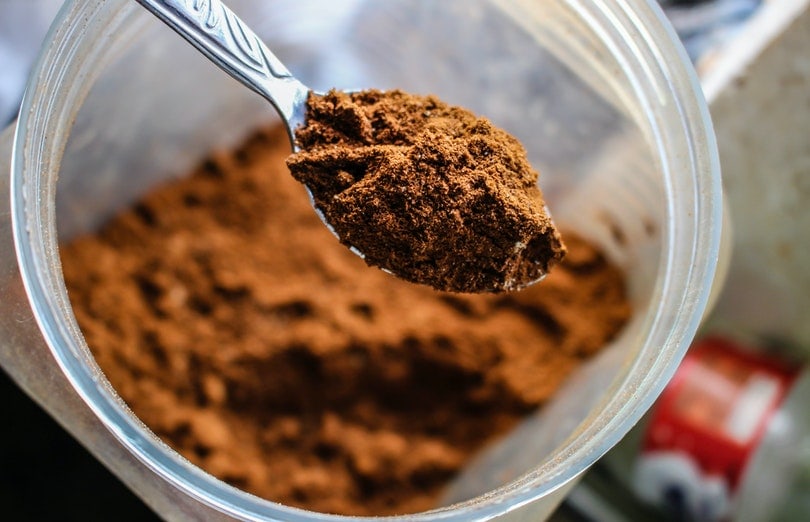
When you’re sitting with a delicious hot mug of cocoa, you probably aren’t thinking about the caffeine content of your chocolatey drink. However, if you are trying to cut back on your daily caffeine intake, you may need to.
Cocoa powder is a much-used item in most pantries. We use it for baking, making hot chocolate, and a multitude of other uses. However, many of us don’t realize there is caffeine in cocoa powder. According to the USDA, 3.5 ounces of unsweetened cocoa powder contains up to 230 milligrams of caffeine.1
In this article, we will talk about the caffeine content in cocoa powder as well as a few of its health benefits and side effects.
What Is Cocoa Powder?
Cocoa powder is a food product that adds a deep chocolate flavor to desserts and beverages. It’s the fruit of a tropical tree and can be Dutch-processed or natural. Your caffeine intake will naturally vary according to how much cocoa powder you use, but there are roughly 10 milligrams of caffeine per teaspoon, 5–10 times less than coffee.

What Are the Health Benefits of Cocoa Powder?
While cocoa powder does indeed contain caffeine, it’s important to note that just like coffee, cocoa powder has many health benefits too. We’ll look at a few of those health benefits below.
Cocoa Powder Contains Flavonoids
The biggest health benefit that cocoa powder brings is its flavonoid content. Flavonoids are rich in antioxidants, and cocoa powder contains two types; epicatechin and catechin. Flavonoids can help to reduce inflammation and relax blood vessels, which can improve your blood flow and decrease blood pressure too. It’s important to note that the flavonoid content is higher in unsweetened cocoa powder than in the sweetened variety.
Cocoa Powder is Rich in Minerals
Cocoa powder is rich in several important minerals, including iron and zinc. In fact, just one tablespoon of cocoa powder can provide your daily requirement of these essential minerals.
Cocoa Powder Has Antidepressant Effects
Cocoa powder has been known to have antidepressant effects because it contains natural mood enhancers like serotonin, anandamide, and theobromine. Cocoa powder helps boost endorphins and increases serotonin levels, which can counteract depression in a natural, healthy way.

What Are the Side Effects of Cocoa Powder?
Even though there are several possible health benefits when using cocoa powder, there are some possible side effects to consider too, including:
- Anxiety. Large amounts of cocoa powder can lead to anxiety in some people due to the caffeine content.
- Diarrhea. The caffeine in cocoa powder, especially in large amounts, can lead to diarrhea.
- Too much cocoa—especially with sweeteners— can lead to problems for people who have diabetes.
- Headaches & Migraines. People who are sensitive to caffeine may find that cocoa powder triggers headaches and migraines.
If you have a sensitivity to caffeine, it might be best to avoid cocoa powder or only use it in small amounts.
Final Thoughts
There’s roughly 10 mg of caffeine per teaspoon of cocoa powder, compared with roughly 60 mg in a teaspoon of ground coffee. Though cocoa makes a great mug of hot chocolate and is amazing in many desserts, it’s best to keep its use to a minimum if you have caffeine sensitivity.
Featured Image Credit: thecakeschool, Pixabay















